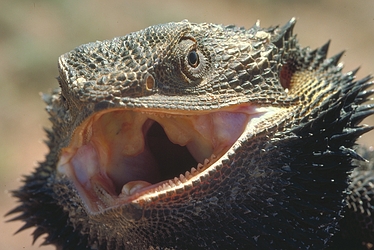Understanding Parasites in Bearded Dragons: A Beginner's Guide
Introduction
Bearded dragons are one of the most popular pet reptiles, known for their friendly demeanor and unique appearance. However, as with any pet, they are susceptible to health issues, including parasites. In this beginner’s guide, we will explore the common types of parasites that can infect bearded dragons, the symptoms to look out for, and how to prevent and treat parasitic infections.
Types of Parasites
There are several types of parasites that can affect bearded dragons, including:
- Mites: These are small, eight-legged parasites that feed on the blood of the bearded dragon.
- Ticks: Ticks attach themselves to the skin of the bearded dragon and feed on their blood.
- Worms: There are several types of worms that can infect bearded dragons, including tapeworms and roundworms.
- Protozoa: Protozoa are single-celled organisms that can cause a variety of health issues in bearded dragons.
Symptoms of Parasitic Infection
It’s important to be able to recognize the signs of parasitic infection in your bearded dragon, as early detection and treatment can prevent serious health issues. Some of the most common symptoms of parasitic infection in bearded dragons include:
- Lethargy and lack of appetite
- Weight loss
- Diarrhea
- Abnormal behavior, such as biting or scratching at skin
- Visible signs of parasites on skin or in feces
Prevention
Preventing parasitic infection in your bearded dragon involves maintaining a clean and healthy habitat. Here are some tips for preventing parasitic infection:
- Clean and disinfect their enclosure regularly
- Provide a clean water source and avoid allowing standing water that can attract insects
- Avoid feeding your bearded dragon wild-caught insects, as they may carry parasites
- Consider feeding your bearded dragon a balanced commercial diet
- Regularly check your bearded dragon for signs of infection
Treatment
If you suspect that your bearded dragon has a parasitic infection, it’s important to take them to a qualified reptile veterinarian for diagnosis and treatment. Treatment for parasitic infection may involve medication or other veterinary interventions.
Conclusion
By taking preventative measures and being aware of the signs of parasitic infection, you can keep your bearded dragon healthy and happy. With proper care and attention, your bearded dragon can be a wonderful, long-term companion.




